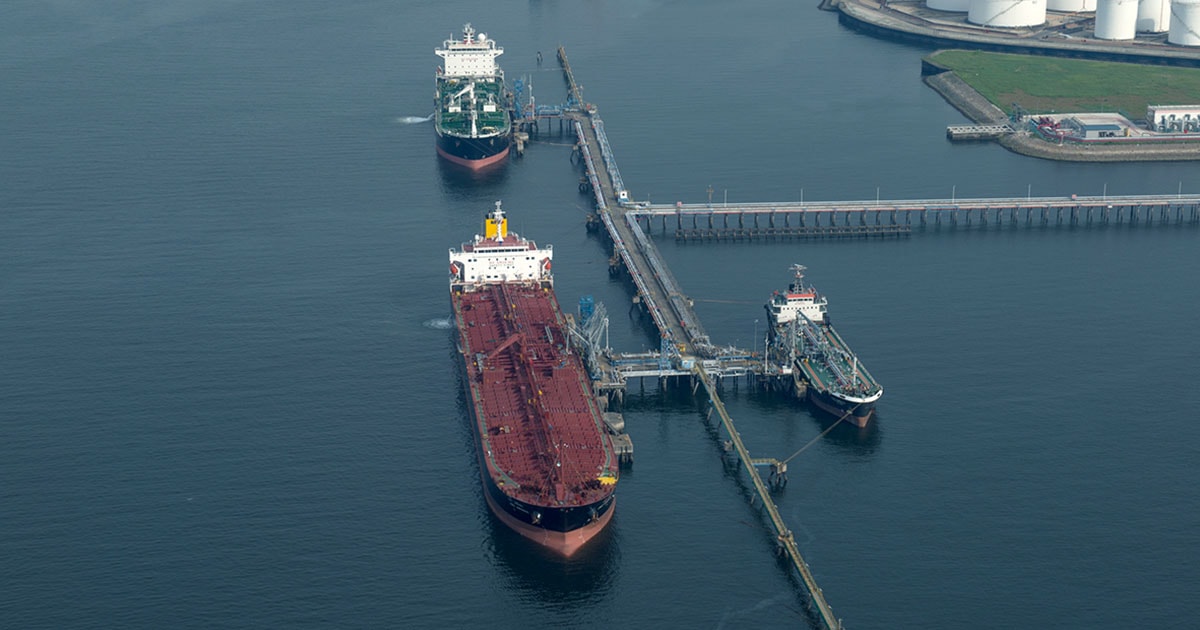Guidance comes ahead of the International Maritime Organization’s (IMO) 2020 0.5 per cent global sulphur cap
Thursday, 27/06/2019, 10:29 GMT+7

The fuels landscape is set to dramatically change when the International Maritime Organization’s (IMO) 0.5 per cent sulphur cap comes into force on 1 January, 2020.
Ahead of this, ExxonMobil has developed top tips to help the marine industry switch to low sulphur fuels while maintaining a vessel’s safe and reliable operation.
First, establish best practice
Prevention is always better than cure, so it is advisable to:
- Buy fuel that meets the latest ISO 8217:2017 specification
- Only bunker from reputable fuel suppliers
- Clean out bunker tank residues when necessary
Test for cat fines
Some new 0.5 per cent sulphur fuels could contain elevated levels of cat fines which, if not properly treated, could trigger catastrophic engine damage. If laboratory testing shows a high concentration, then:
- Maintain storage tank temperatures at least 10°C above fuel pour point
- Keep settling tanks at 85°C
- Operate purifiers at optimum efficiency and minimum throughput
- Drain water from fuel tanks to aid settling
Check for compatibility
There is a risk that two compliant fuels will not be compatible, which can trigger damaging sludge formation. It is therefore essential to:
- Test the fuels for compatibility, ideally in a laboratory
- Store fuels separately until testing has been carried out
- If mixing is unavoidable, avoid comingling in excess of 80:20 mix ratio
Monitor for sludge
If sludge does start to form, it is essential to ensure against further fuel blending before any remedial action is taken, as this may exacerbate the problem. Then:
- Operate two or more separators in parallel at their lowest throughput
- Increase the frequency of purifier discharge
- Monitor and clean filters frequently
“With so many different types of fuel potentially set to enter the bunker market, vessel operators are rightly concerned about stability, compatibility and quality issues, such as elevated levels of cat fines,” said John LaRese, Marine Fuels Technical Advisor, ExxonMobil. “It will therefore be more important than ever for operators to follow best practice when bunkering compliant fuels, including using laboratories to test fuel samples for potential issues.”
Your Comments
Other news
Mobil℠ Cylinder Condition Monitoring (CCM) – dịch vụ giám sát tình trạng xy lanh động cơ tàu biển do ExxonMobil phát triển. Dịch vụ giúp theo dõi chất lượng dầu xy ...
Minerva Gas đã làm gì để bảo vệ đội tàu LNG của mình và tối ưu hóa chi phí vận hành thông qua Chương trình Giám Sát Tình Trạng Xy lanh của Mobil (Mobil℠ ...
Mobilarma 798 là sản phẩm dầu chuyên dụng được thiết kế để bôi trơn và bảo vệ cáp thép trong các hệ thống nâng hạ, đặc biệt phù hợp với điều kiện ...
Our synthetic lubricants offer significant advantages over mineral oils - especially under extreme temperatures and pressures.
A lower GHG emission fuel
Mobil™ is a trusted supplier of high-performance cylinder oils and related services. They can also deliver the same level of support for your ancillary lubricant purchases.
Now easier to use, delivering improved insights and analytics - all in real-time. Learn how Mobil℠ Cylinder Condition Monitoring can help safeguard your engine operations, reduce costs and ensure ...
ExxonMobil's full line of environmentally acceptable lubricants (EALs) comply with the 2013 US Vessel General Permit (VGP) without compromising on performance.
Expanded testing helps ensure service users get the insights they need to maintain safe and efficient operations
ExxonMobil has revealed the three winners of the Marine Channel Partner Awards in 2023.







__CCM.png)
__1.png)
__z6633658534177_8c2f9f09731e8389685841b044e8e82b.jpg)
__bunkering_ship_front_screen_xl.jpg)
__PR-0009516-Bio-Marine-Fuel_1300x400.jpg)
__EM_Marine_LP_Header_Wave.jpg)
__hinh_backdrop.jpg)
__Y2meta.app-Mobil_SHCY_AwareY_lubricants_Y_delivering_compliance_and_performance-1080p_000051.jpg)
__1707321244452.jpg)
__1.jpg)
